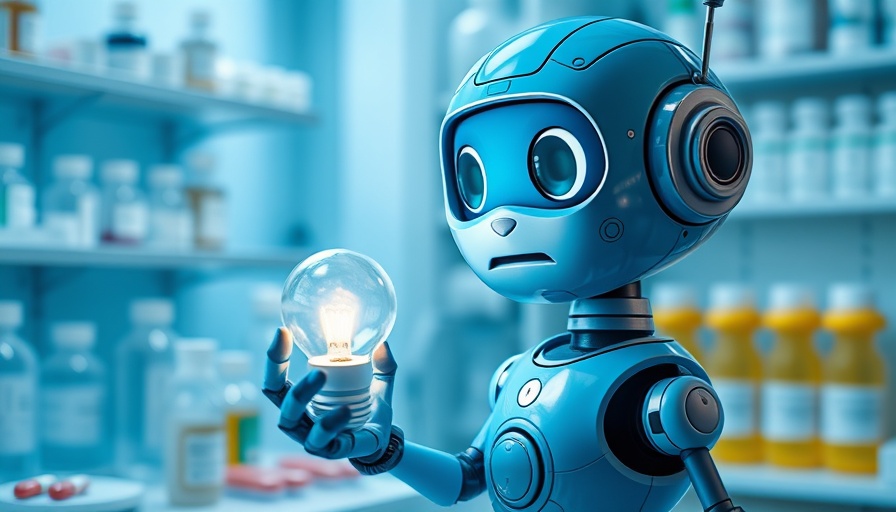
The Future of Drug Discovery and AI: A Game Changer
As Europe steps up its efforts in the realm of AI-powered drug discovery, it’s crucial to understand the transformative impact this technology can have on healthcare. AI algorithms enable researchers to analyze vast datasets rapidly, identifying potential drug candidates more efficiently than traditional methods. In 2025, Isomorphic Labs, a spinoff from Google’s DeepMind, is set to begin clinical trials on AI-designed drugs, featuring groundbreaking collaboration with big pharma giants like Eli Lilly and Novartis. This shift not only promises to enhance treatment outcomes but also aims to address global health challenges with unprecedented speed.
The Momentum of Collaboration Between Pharma and AI Startups
The partnership dynamics in drug development are evolving rapidly. Key collaborations, like that of Isomorphic Labs with Eli Lilly, valued at $45 million, exemplify how innovation meets necessity. These partnerships allow biotech firms to leverage AI's capabilities while combining resources, knowledge, and funding to expedite the drug development process. Isomorphic's potential to earn up to $1.7 billion in performance milestones underscores the financial and operational value of integrating AI into pharmaceutical research.
AI Startups Fueling Innovation in Drug Discovery
The AI-driven drug discovery market has grown tremendously, with over 460 startups actively pursuing breakthroughs. Notable success stories include Exscientia, which has advanced its AI-designed drug candidate into human trials in a record 12 months. Such advancements highlight the agility and effectiveness of AI in a sector traditionally marked by lengthy development cycles. Companies like CardiaTec and Multiomic Health showcase the diverse applications of AI technology, focusing on niche areas such as heart conditions and metabolic diseases.
Navigating the Challenges Ahead
Despite the promising advancements, it’s essential to acknowledge that AI isn’t a panacea for the complexities of drug discovery. While it expedites the identification of viable compounds, arduous processes like wet lab testing and regulatory approvals remain. As AI technologies advance, ongoing discussions about ethical implications and data privacy become critical in addressing concerns over transparency and responsibility in drug development.
Driving Industry Change with AI
The implications of AI in drug discovery extend beyond pharmaceuticals, affecting various industries. Marketing executives and leaders across sectors can draw parallels between AI's role in healthcare and its potential to transform their own operations. By leveraging data-driven insights, businesses can enhance marketing effectiveness, streamline processes, and foster innovative solutions that resonate with consumers.
Conclusion: The Path Forward for AI and Healthcare
AI-driven drug discovery is transforming the landscape of healthcare and drug development. As Europe accelerates its investment in this technology, the integration of AI into pharma represents a critical juncture for future therapeutics. Embracing these innovations can pave the way for more efficient processes not only in healthcare but across various markets. Keeping an eye on this trend will be essential for business leaders looking to maintain a competitive edge.
 Add Row
Add Row  Add
Add 




Write A Comment